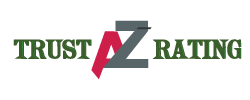Yes, a bank can foreclose on a home equity loan if the borrower fails to make timely payments. A home equity loan is a type of loan where the borrower uses their home as collateral. If the borrower defaults on the loan, the bank has the right to initiate foreclosure proceedings to recover the outstanding debt. Foreclosure is a legal process where the lender takes possession of the property and sells it to repay the loan. It is important for borrowers to understand the terms and conditions of their home equity loan and make regular payments to avoid foreclosure.
Does it hurt your credit to close a HELOC?
Closing a HELOC typically does not have a significant impact on your credit score. This is because HELOCs and other installment loans have a minimal effect on the “how much you owe” component of your credit score. If you have been consistently making timely payments on your HELOC, closing it should not negatively affect your credit score.
It is important to note that positive information, such as on-time payments, continues to contribute to your credit score for up to 10 years. On the other hand, negative information remains on your credit report for up to seven years. Therefore, closing a HELOC will not result in immediate changes to your credit score.
What is in forbearance?

Forbearance is a temporary solution provided by your mortgage servicer or lender that allows you to make lower mortgage payments or temporarily pause making payments altogether. This option can be helpful when facing difficulties such as home damage from a flood, increased healthcare expenses due to illness or injury, or job loss. It is important to note that forbearance does not eliminate the amount you owe on your mortgage. Any missed or reduced payments will need to be repaid in the future.
Can you close a HELOC anytime?

A Home Equity Line Of Credit (HELOC) is a flexible loan that allows you to borrow against the equity in your home. Similar to a credit card, the amount you owe can vary from month to month. Additionally, the minimum payment required will also change. It is even possible to have an open line of credit with a zero balance.
With a HELOC, you have access to a specific amount of money, but you are not obligated to use any of it. If you have any remaining balance on your HELOC, you can choose to pay it off at any time. Most HELOCs have a predetermined term, and once that term is up, you must repay any remaining balance.
In the event that you decide to pay off your HELOC balance before the term ends, your lender may give you the option to close the line of credit or keep it open for future borrowing.
Can the bank foreclose on my home?

Foreclosure occurs when a bank or mortgage lender seizes property that is in default, typically against the homeowner’s wishes. The mortgage agreement stipulates that if loan payments are not made, the bank has the right to reclaim the property through foreclosure.
The foreclosure process can vary depending on the state, with options for both judicial and nonjudicial proceedings.
In a judicial foreclosure, the lender initiates the process by filing a lawsuit. The borrower then has the opportunity to contest the lawsuit in court. If the borrower loses, the house will be foreclosed upon and can be sold at an auction.
Nonjudicial foreclosures, on the other hand, rely on power-of-sale clauses in the mortgage or deeds of trust to recover the outstanding balance. This process does not involve a court hearing and is generally faster than a judicial foreclosure. Trustees, appointed by the lender, are authorized by the mortgage clause to sell the home and use the proceeds to pay off the remaining balance. The lender must adhere to the out-of-court steps outlined by the state and the mortgage agreement to initiate the foreclosure process.
Can a bank foreclose if payments are current Canada?

Foreclosure occurs when the mortgage lender does not receive payment. If you stop making mortgage payments, the lender can take legal action against you and, if successful, gain ownership of your property.
During the foreclosure process, the homeowner relinquishes all rights to the property, including any accumulated equity. Once the lender forecloses on the property, they have the freedom to decide what to do with it, such as renovating, renting, or selling it.
Foreclosure is a time-consuming and expensive procedure. The lender initiates the process by filing a Statement of Claim with the court, giving you 20 days to respond. If you fail to defend yourself, your mortgage may be declared in default. The lender will then seek a foreclosure order as a remedy. However, if the court believes there is a possibility for you to catch up on your payments, they may issue a Redemption Order. This order grants you a specific period to bring your mortgage payments up to date.
Typically, the redemption period lasts for six months, but you can request an extension from the court, while the lender may request a shorter timeframe. The crucial point to note is that you can halt foreclosure proceedings by either becoming current on your mortgage payments or paying off the mortgage within this timeframe.
It is important to understand that both parties involved want a favorable outcome. The court does not want to see you lose your home, and the lender simply wants to recover their money. If the court can find a solution that allows you to keep your home while ensuring the lender receives payment, they will choose that option over foreclosure. Lenders generally prefer receiving payments rather than going through the foreclosure process.
Finding a mutually beneficial plan is in your best interest as well as the lender’s. This is where bankruptcy can be helpful.
Conclusion
Conclusion:
In conclusion, closing a HELOC can have an impact on your credit, but the extent of the impact will depend on various factors such as your overall credit history and the utilization of your other credit accounts. It is important to consider the potential consequences before making a decision to close a HELOC.
Forbearance is a temporary solution that allows homeowners to pause or reduce their mortgage payments for a specific period of time. It is typically offered during times of financial hardship, such as job loss or medical emergencies. While forbearance can provide temporary relief, it is important to understand that the missed payments will still need to be repaid in the future. Homeowners should carefully consider their financial situation and explore all available options before entering into a forbearance agreement.
In Canada, a bank cannot foreclose on a property if the mortgage payments are current. As long as the homeowner is making their payments on time, the bank does not have the right to initiate foreclosure proceedings. However, it is important to note that if the homeowner falls behind on their mortgage payments, the bank may have the right to foreclose on the property.
Closing a HELOC can generally be done at any time, but it is important to review the terms and conditions of your specific HELOC agreement. Some lenders may have specific requirements or penalties for early closure. It is advisable to contact your lender and discuss your intentions to close the HELOC to ensure a smooth process and avoid any potential fees or complications.
In summary, understanding the potential impact on your credit, the terms and conditions of your HELOC agreement, the implications of forbearance, and the consequences of falling behind on mortgage payments are all crucial factors to consider when making decisions related to your home and finances. It is always recommended to seek professional advice and explore all available options before taking any action that may have long-term consequences.
Sources Link
https://www.forbes.com/advisor/mortgages/foreclosure-basics/
https://www.cnet.com/personal-finance/home-equity/advice/how-does-a-heloc-affect-your-credit-score/
https://www.consumerfinance.gov/ask-cfpb/what-is-forbearance-en-289/
https://www.hoyes.com/blog/complete-guide-to-bankruptcy-and-mortgage-foreclosure/
https://credit.org/blog/paying-off-home-equity-loan-early/
You are watching: can a bank foreclose on a home equity loan
